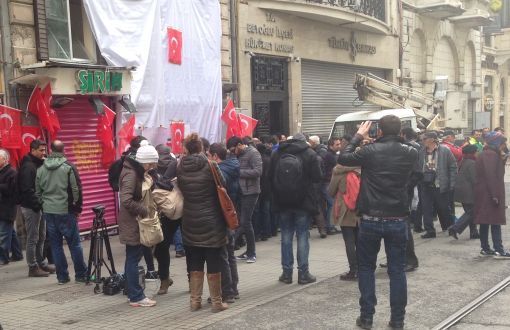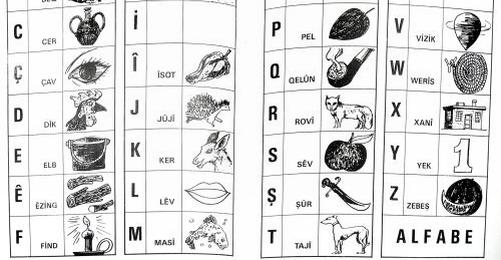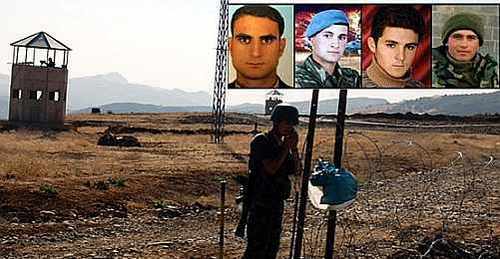Ecevit to Oppose Military Action in Iraq
From concerns over a US operation against Saddam Hussein to reduction of tariffs on Turkish exports, the outcome of these talks will have a long-term effect on regional balances, political analysts here believe.
Turkish leaders are particularly worried by prospects of Washington turning on Iraq after Afghanistan.
Pentagon's leading hawk, deputy defense secretary Paul Wolfowitz hinted Tuesday last week that an attack on Iraq is not on the immediate US agenda. But Turkish political and military leaders remain uneasy about US intentions.
''US ambitions to topple Saddam Hussein regime might not result in an imminent attack, yet in unofficial talks US envoys are still asking my advice on pros and cons of a military strike against Iraq,'' former Turkish Chief of Staff Dogan Gures said in a Thursday night TV talk-show.
In an interview with Turkish news channel NTV this week Ecevit said he will express Ankara's worries to Bush that any US operation against Saddam could encourage uprisings in the mostly Kurdish northern areas of Iraq bordering Turkey.
Bush will be hosting the leader of a NATO country who in the past has not hidden his sympathies for Saddam Hussein. Ecevit visited the Iraqi leader twice in Baghdad as journalist in 1990-1991. At the time then Turkish president Turgut Ozal was offering the earlier George Bush full Turkish support for an invasion of Iraq.
Ecevit's opponents later dubbed him a ''Saddamist''.
Ecevit's views changed after he rose to power in the late 1990s, says political analyst Hasan Cemal of Milliyet. ''The military briefings during his days as prime minister, and the obligations of pursuing an alliance with the US and NATO reshaped Ecevit's thoughts.''
Ecevit is prompted today by concerns over the Kurdish question, rather than sympathy for Saddam. Divided into four parts after the collapse of the Ottoman Empire, most of 12 million Kurds now live in south-eastern Turkey, with some two million in Northern Iraq, about a million in Iran and less than a million in Syria.
Kurdish guerrillas have launched an insurgency in southern Turkey and northern Iraq for creation of a Kurd state. The Turkish government fears that Iraq may not be able to hold its present territory if the Saddam regime were to collapse under US strikes.
Kurdish political analyst Umit Firat told IPS: ''Turkey indeed fears from replacement of the Saddam Hussein rule by a democratic regime who would grant broader freedom to Northern Iraqi Kurds, which in turn might present legitimate model for Turkey's Kurds.''
The Kurdistan Workers Party (PKK) declared war on Turkey in 1984 in pursuit of self-determination. Fifteen years of armed conflict have left30,000 dead, and a devastated countryside. The PKK has built rear bases in Northern Iraq and recruited guerrillas among Iraqi Kurds.
It is a situation of concern to the US as well. ''Washington would certainly listen to Turkey's advice before laying down concrete decisions on the issue,'' says political analyst Sami Kohen.
Another sour foreign policy issue to be discussed during the meeting is the 28-year-old Cyprus question, which remains a major roadblock in Turkey's relations with the West.
This Mediterranean island to the south of Turkey remains divided into a Turkish north and a Greek south. The division came after the Turkish invasion of 1974 in response to a military coup by Nikos Sampson against then Cyprus president Archbishop Makarios II. Makarios II had until then led a bi-communal government.
The Turkish government maintains about40,000 troops in the north of Cyprus on grounds of providing security to Turkish Cypriots. UN-sponsored negotiations for a solution have been unsuccessful.
The UN recognizes the Cyprus Republic as the sole legal representative of all inhabitants of the island while the Ankara-backed Turkish Republic of Northern Cyprus is not recognized by any country but Turkey.
The issue has assumed urgency since last year after the European Union decided to start negotiations for full membership of the Cyprus Republic notwithstanding the Turkish position.
Ecevit is expected to seek US support for Ankara's position that Cyprus's accession to EU membership be suspended until Ankara's demands for a bi-communal government in the island are met.
Bush will have heard the Greek side of the argument before his meeting with Ecevit. Greek Prime Minister Kostas Simitis began an official visit to Washington January 10.
Ecevit and Bush will also discuss the dire straits the Turkish economy is in after the financial crisis that shook the Turkish banking system in February 2000. Shockwaves from that saw the Turkish economy shrink 40 percent last year.
Looking to resume economic growth by 2003, Ecevit will be looking for reduction of US tariffs on Turkish exports, particularly textile products. Some 100 business leaders who will accompany Ecevit will also be looking for increased cooperation with US firms. (END/IPS/MM/IP/NM/SS/02)
BY NADİRE MATER
We* Couldn’t Hold Our Journalism Workshop, LGBTI Events Banned; Voice and Silence

NADİRE MATER'S IMPRESSIONS
İstiklal Street 1 Day After Bomb Attack

We Are Thankful

EDUCATION
The Language Wound - Bilingualism with Kurdish

Nadire Mater Writes
The Grenade Pin that Killed İbrahim, İbrahim, Ali Osman and Mesut





